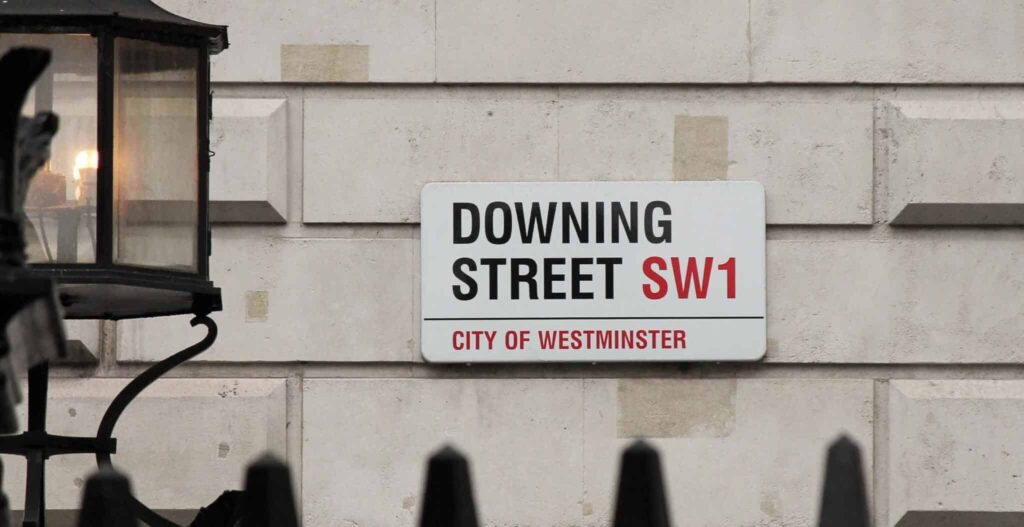With the 2024 UK general election fast approaching, Global Counsel, a company that helps businesses anticipate and adapt to political and policy change, joined us to discuss what to expect from this year’s political landscape and what it could mean for businesses.
We’re going to hear a lot about a change election in the media over the course of this year. However, when it comes to what a change election actually looks like, change could take many forms, and the change people get may not be popular.
With Labour currently holding a consistent lead of around 20 points in the polls the predictions are that Labour will win a landslide majority. However, with both Rishi Sunak and Keir Starmer suffering low approval ratings and the big shift in support needed by Labour to reverse the results of the 2019 election, the margins between a potential landslide or a hung parliament in 2024 are incredibly close.
Shifting public opinion on key issues is shaping policy changes
Many seismic events, including COVID-19, Russia’s invasion of Ukraine and Brexit, have all led to a reshaping of public opinion over the last few years. With public opinion constantly shifting, politicians are having to closely monitor and respond to these changes.
Attitudes on the EU and migration are changing
One important issue that is evolving is attitudes towards both the EU and migration. Voters are, on the face of it, becoming more likely to support a politician who would seek to renegotiate the Brexit deal for closer ties with the EU or who would strike a deal with the bloc on migrant returns. This presents a challenge for Rishi Sunak as Keir Starmer has already made these commitments.

Climate change is an issue of increasing relevance
Recent extreme weather events have shifted climate into view and dramatically increased it in the public’s prioritisation.
Concerns around AI are emerging as a future battleground
Equally, concerns about AI are rising up the political agenda – albeit not so much about the risks of misinformation that we see in other areas of tech policy, like social media – but instead about the concern that AI might displace jobs, disrupting previously settled labour markets.
2024 looks like a change election, but the change people get may not be popular.
What does the election mean for media and tech?
In terms of how media and tech are treated, there is a call to level the playing field on taxes, particularly in streaming and e-commerce, whilst protecting intellectual property and encouraging the use of AI and data to achieve efficiencies. There is likely to be a focus on maintaining close alignment with the US as derisking from China remain a priority.
What does the election mean for transport?
There is increased focus on electrification to align with power decarbonisation goals by 2030. Greater openness to consumer subsidies is expected, yet likely to be targeted at those on lower incomes rather than universally. Additionally, identifying green transport capital projects is seen as a way to stimulate growth and underpin wider productivity gains.
What does the election mean for financial services?
In the financial services sector, regulatory bodies are anticipated to adopt a more assertive approach, with the focus on consumer protection. Sustainable finance and the sector’s role in driving transition and changing behaviour across both businesses and consumers will also be emphasised. Furthermore, addressing profit and pay disparities, along with identifying sector-specific taxes and perceived loopholes are on the agenda, in response to the nation’s cost-of-living challenges.
What does the election mean for retail and CPG?
For retail and consumer packaged goods (CPG) industries, the tax landscape is anticipated to remain complex, with a likelihood of high corporation tax and increased personal tax, with some SME relief on business rates. Focus will be placed on workers’ rights and skills development, complementing greater usage of AI and data by corporates. A Labour government would also see an intent to revive commitment to environmental, social, and governance (ESG) practices, though specific detail regarding packaging and circularity measures is yet to be announced. Expect a focus too on the ‘class ceiling’.
What does the election mean for the public sector?
As for the government as a customer, advertising will be prioritised in the event of a Labour victory, with new media and creative industries more likely to be used as routes to reach different audiences.
Prevention is expected to become a key metric in justifying spending and policy choices, along with a focus on key public health campaigns. Digitisation will be the preferred approach, with new tech being deployed through pilots where there is opportunity for both innovation and cost savings.
Key takeaways
- Understand the “push” factors. Policy choices are not baked-in and will be informed by shifting public perceptions.
- Represent your closeness to customers. Your customers are the voters policymakers need to better understand.
- Align your messaging. Talking in the same language on skills, jobs, net-zero and technology as policymakers is powerful.
- Some things don’t change. Officials will remain in post and remain important stakeholders in future policy development.





